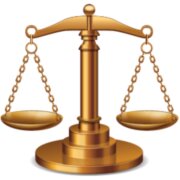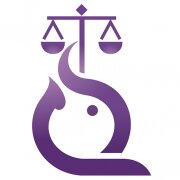Best Environmental Law & Compliance Lawyers in Bangkok
Share your needs with us, get contacted by law firms.
Free. Takes 2 min.
List of the best lawyers in Bangkok, Thailand
Thailand Environmental Law & Compliance Legal Articles
Browse our 1 legal article about Environmental Law & Compliance in Thailand written by expert lawyers.
- What Are the Legal Issues Surrounding Environmental Regulations in Thailand?
- As Thailand confronts growing issues with pollution, deforestation, climate change, and unsustainable industrial activities, environmental control in the nation has become ever more relevant. Navigating the complexities of Thai environmental regulations calls for a thorough awareness of the legal framework, enforcement tools, and continuous difficulties for attorneys and interested parties.Overview... Read more →
About Environment Law in Bangkok, Thailand
Environmental law in Bangkok, Thailand, encompasses regulations and policies designed to manage and protect the environment from harm. As the capital city, Bangkok faces significant environmental challenges such as air pollution, waste management, and water quality issues due to its dense population and rapid urbanization. The government, through agencies like the Ministry of Natural Resources and Environment (MNRE), enforces various national laws and local regulations to mitigate environmental impact and promote sustainable development.
Why You May Need a Lawyer
Individuals or businesses may require legal assistance in a variety of situations related to the environment. Common scenarios include compliance with environmental regulations, defending against violations or penalties, addressing environmental damage or contamination, engaging in environmental litigation, and facilitating the development of projects with potential environmental impacts. Legal experts in environmental law can offer guidance, representation, and advocacy to navigate these complex issues.
Local Laws Overview
Several key laws govern environmental issues in Bangkok. The Enhancement and Conservation of National Environmental Quality Act is a comprehensive legal framework addressing air and water pollution, waste management, and environmental conservation. Other relevant laws include the Factory Act, which regulates industrial activities, and the Public Health Act, which includes provisions for environmental health standards. Local ordinances, such as zoning laws and environmental impact assessments, also play crucial roles in managing environmental matters.
Frequently Asked Questions
What is the role of the Ministry of Natural Resources and Environment?
The Ministry of Natural Resources and Environment (MNRE) is responsible for formulating and implementing national policies on natural resources and environmental management. It enforces environmental laws, conducts inspections, and manages initiatives to protect the environment in Thailand.
How are environmental impact assessments conducted?
Environmental impact assessments (EIAs) are required for projects that may significantly affect the environment. They evaluate potential impacts and propose mitigation measures, and must be approved by the relevant authorities before project implementation.
What are the penalties for violating environmental laws?
Penalties for violating environmental laws in Bangkok can range from fines and orders to stop operations to more severe measures like criminal charges, especially for repeat offenders or severe environmental damage.
How can individuals or businesses comply with environmental regulations?
Compliance involves understanding and adhering to relevant laws and regulations, obtaining necessary permits, regularly monitoring environmental impact, and implementing mitigating measures when necessary. Consulting with an environmental lawyer can aid in ensuring compliance.
What should I do if I suspect an environmental violation?
If you suspect an environmental violation, you can report it to local authorities or the MNRE. Providing detailed information will help them investigate the issue effectively.
Are there specific laws regarding air pollution in Bangkok?
Yes, air pollution in Bangkok is governed by several laws aimed at monitoring and reducing emissions. These include vehicle emissions standards and industrial emissions regulations. The government also implements air quality monitoring programs.
What is the current state of waste management laws?
Waste management laws in Bangkok address the collection, treatment, and disposal of waste. They promote recycling and waste reduction initiatives, with strict regulations to prevent illegal dumping and pollution.
How does the law address water pollution?
Water pollution laws in Bangkok focus on regulating discharges into water bodies, setting quality standards, and imposing penalties for violations. The government conducts regular monitoring to safeguard water resources.
What legal protections exist for natural habitats and wildlife?
Legal protections for natural habitats and wildlife are provided under specific conservation laws and policies that restrict activities harming protected areas and species. These laws mandate impact assessments for developments near sensitive habitats.
What resources are available for staying informed about environmental laws?
Staying informed involves accessing government publications, agencies like MNRE updates, environmental law seminars, and working with environmental legal professionals for personalized guidance.
Additional Resources
Several resources can aid those needing legal advice on environmental issues in Bangkok:
- Ministry of Natural Resources and Environment (MNRE) - For regulatory guidelines and policy updates.
- Bangkok Metropolitan Administration - For local ordinances and environmental management programs.
- Thai Environmental Law Centre - Provides legal assistance and advocacy for environmental issues.
- Environmental Litigation Associations - Offer support and legal services for environmental matters.
Next Steps
If you require legal assistance in environmental matters, assess your specific needs and seek consultations from experienced environmental lawyers who understand local regulations. Consider reaching out to law firms specializing in environmental law for tailored advice and representation. Preparing documentation and evidence related to your concern can also streamline the process and provide better outcomes.
Lawzana helps you find the best lawyers and law firms in Bangkok through a curated and pre-screened list of qualified legal professionals. Our platform offers rankings and detailed profiles of attorneys and law firms, allowing you to compare based on practice areas, including Environmental Law & Compliance, experience, and client feedback.
Each profile includes a description of the firm's areas of practice, client reviews, team members and partners, year of establishment, spoken languages, office locations, contact information, social media presence, and any published articles or resources. Most firms on our platform speak English and are experienced in both local and international legal matters.
Get a quote from top-rated law firms in Bangkok, Thailand — quickly, securely, and without unnecessary hassle.
Disclaimer:
The information provided on this page is for general informational purposes only and does not constitute legal advice. While we strive to ensure the accuracy and relevance of the content, legal information may change over time, and interpretations of the law can vary. You should always consult with a qualified legal professional for advice specific to your situation.
We disclaim all liability for actions taken or not taken based on the content of this page. If you believe any information is incorrect or outdated, please contact us, and we will review and update it where appropriate.

















